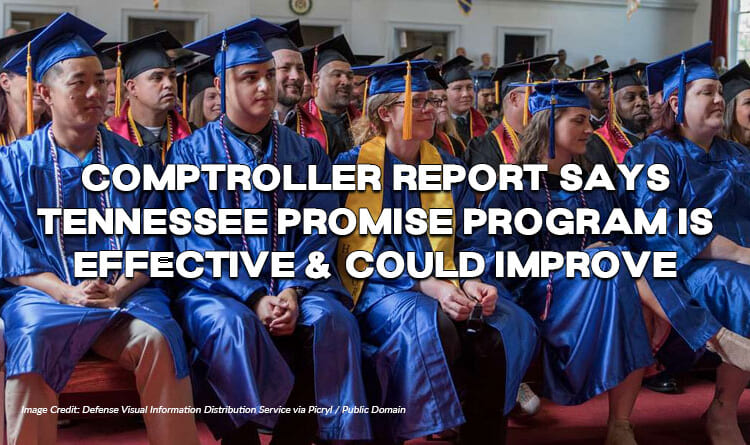Image Credit: Defense Visual Information Distribution Service via Picryl / Public Domain
The Center Square [By Jon Styf] –
Students who take part in the Tennessee Promise program earn credits and awards at a higher rate and are retained more often than students who are not part of the program, which began in 2014 to help students obtain an associate degree, credential or diploma free of tuition and mandatory fees.
A new report shows that 46% of Promise students receive at least 24 credits in their first year at a community college compared to 18% of the rest of the student population.
Nearly 48% of Promise students earned at least 1,170 in the first year at the Tennessee Colleges of Applied Technology (TCAT) compared to 26% of students outside the program, according to an evaluation of the program from the Comptroller’s Office of Research and Education Accountability.
The program is a last-dollar scholarship, meaning it will cover costs after other scholarships are factored in at community colleges, or it will fund up to the $4,000 average community college tuition mark for associate degree programs at four-year schools.
The report says Promise scholarship students may pay at least $1,000 per year in out-of-pocket expenses at community college or $3,100 at TCAT.
The report recommends expanding the reach of the funds or adding a minimum Promise payment.
The report said most Promise students at community colleges, especially those studying nursing, do not complete a degree within the program’s five-semester limit. The report suggests the state extend the program for at least some students to increase the rate of degree attainment.
The report also said meeting the initial community service deadline is the most common reason that applicants are not eligible and suggests the state could remove that requirement to increase student eligibility.

About the Author: Jon Styf, The Center Square Staff Reporter – Jon Styf is an award-winning editor and reporter who has worked in Illinois, Texas, Wisconsin, Florida and Michigan in local newsrooms over the past 20 years, working for Shaw Media, Hearst and several other companies. Follow Jon on Twitter @JonStyf.



